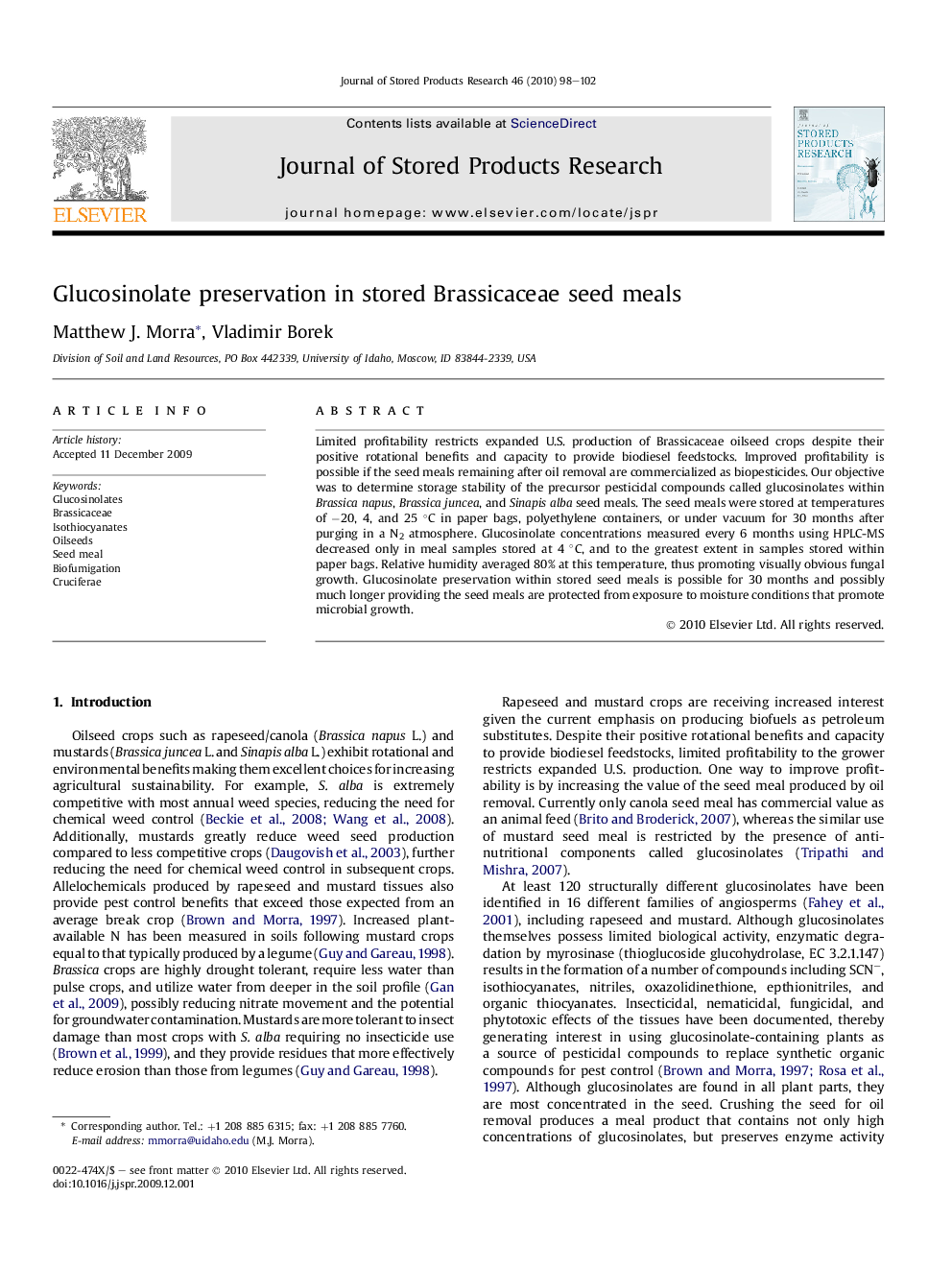| Article ID | Journal | Published Year | Pages | File Type |
|---|---|---|---|---|
| 4517313 | Journal of Stored Products Research | 2010 | 5 Pages |
Abstract
Limited profitability restricts expanded U.S. production of Brassicaceae oilseed crops despite their positive rotational benefits and capacity to provide biodiesel feedstocks. Improved profitability is possible if the seed meals remaining after oil removal are commercialized as biopesticides. Our objective was to determine storage stability of the precursor pesticidal compounds called glucosinolates within Brassica napus, Brassica juncea, and Sinapis alba seed meals. The seed meals were stored at temperatures of â20, 4, and 25 °C in paper bags, polyethylene containers, or under vacuum for 30 months after purging in a N2 atmosphere. Glucosinolate concentrations measured every 6 months using HPLC-MS decreased only in meal samples stored at 4 °C, and to the greatest extent in samples stored within paper bags. Relative humidity averaged 80% at this temperature, thus promoting visually obvious fungal growth. Glucosinolate preservation within stored seed meals is possible for 30 months and possibly much longer providing the seed meals are protected from exposure to moisture conditions that promote microbial growth.
Related Topics
Life Sciences
Agricultural and Biological Sciences
Agronomy and Crop Science
Authors
Matthew J. Morra, Vladimir Borek,
